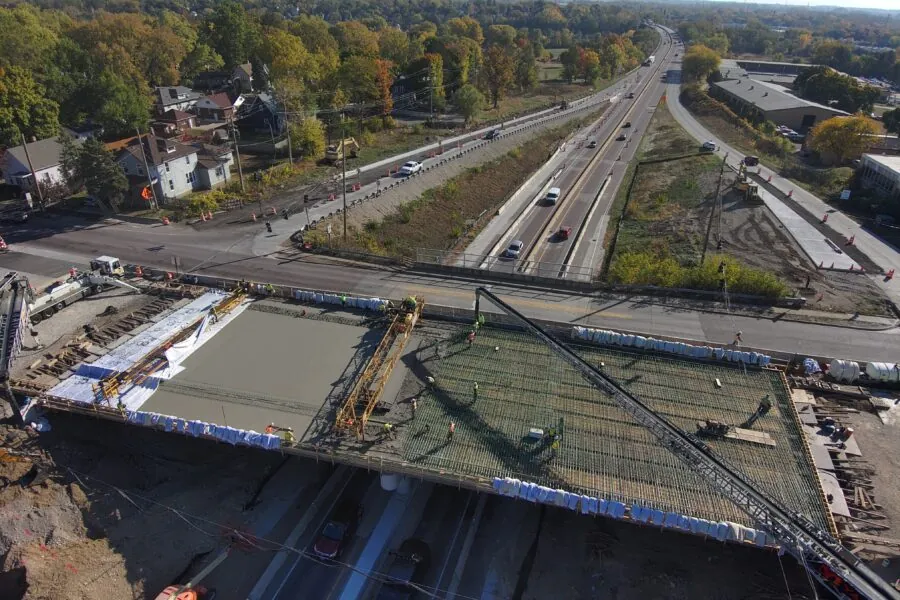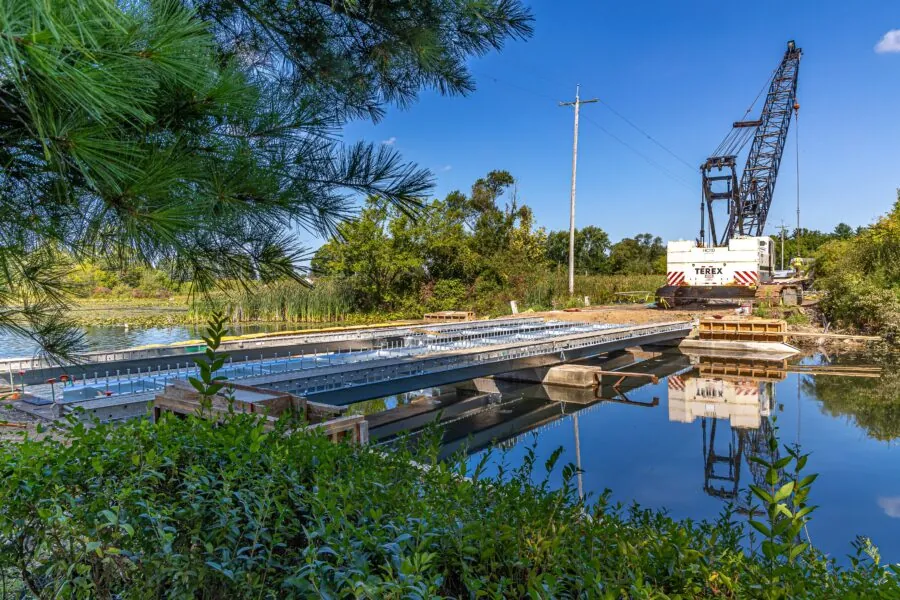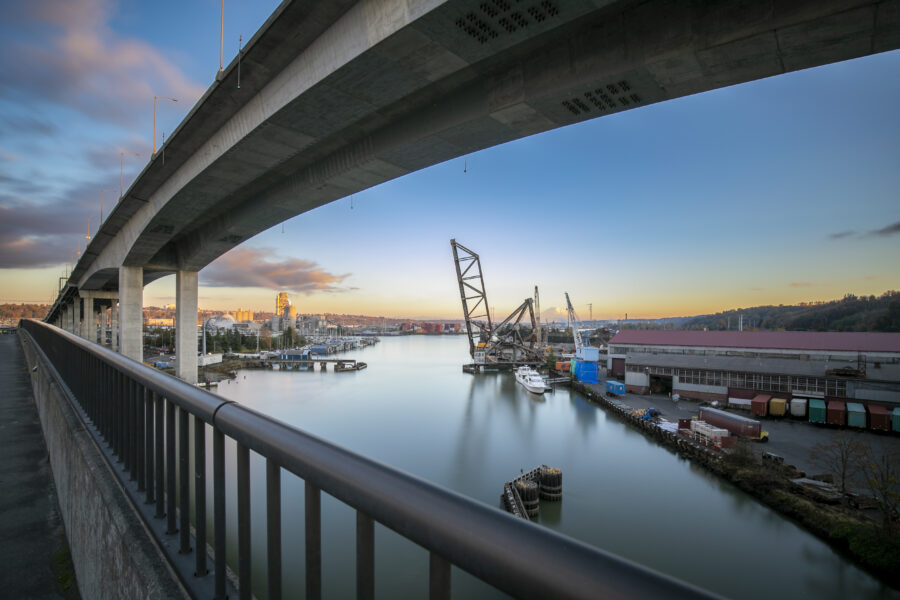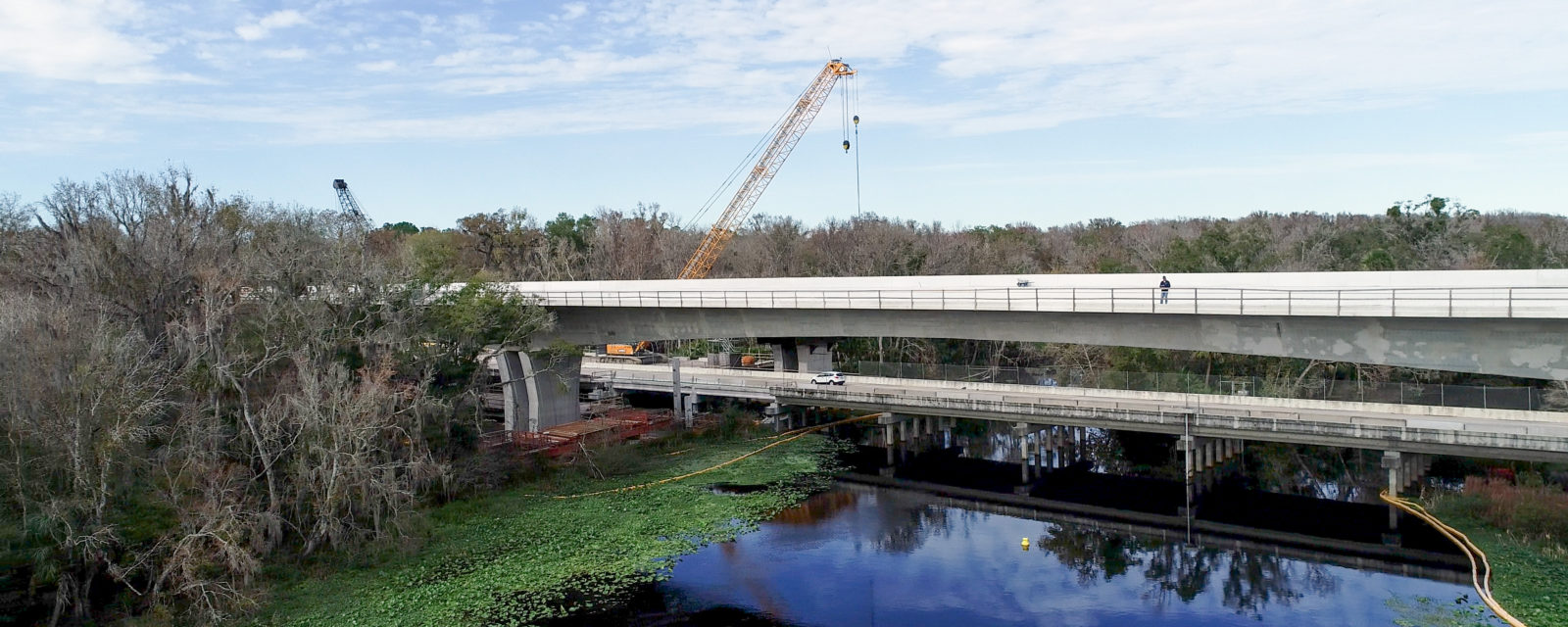
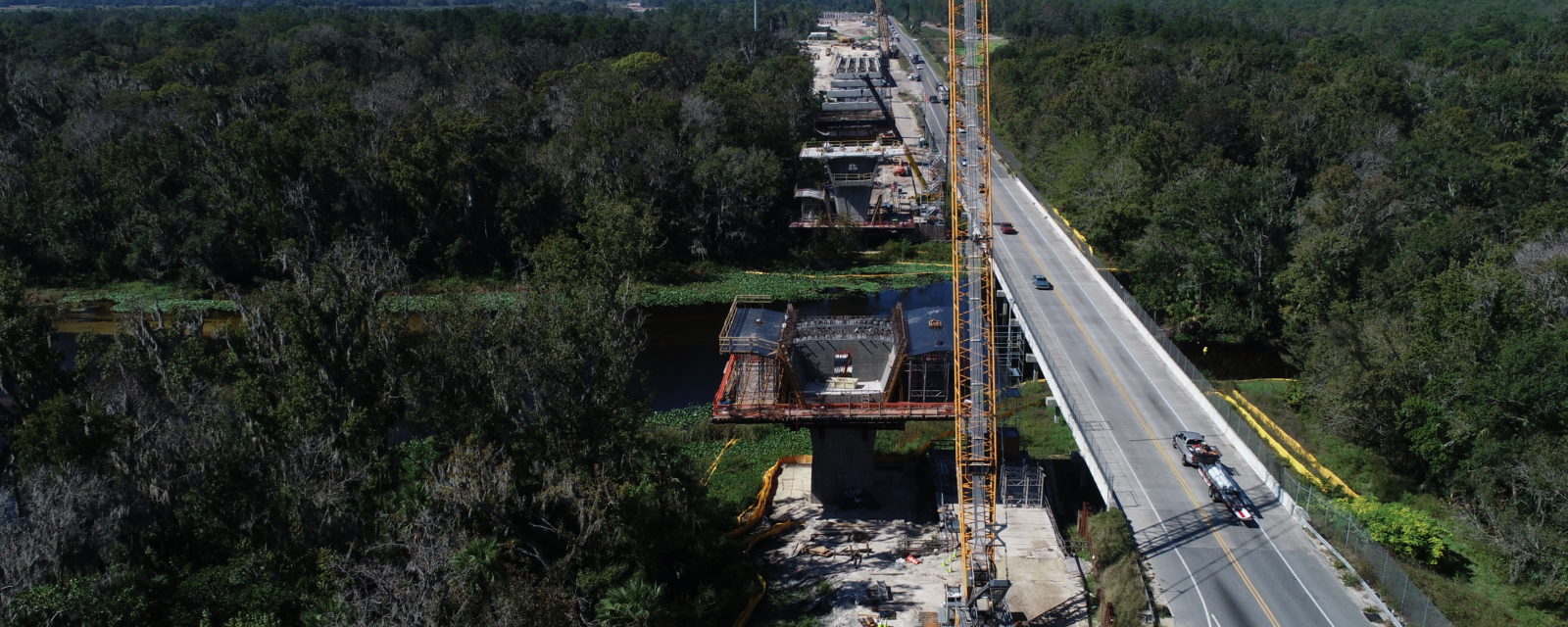
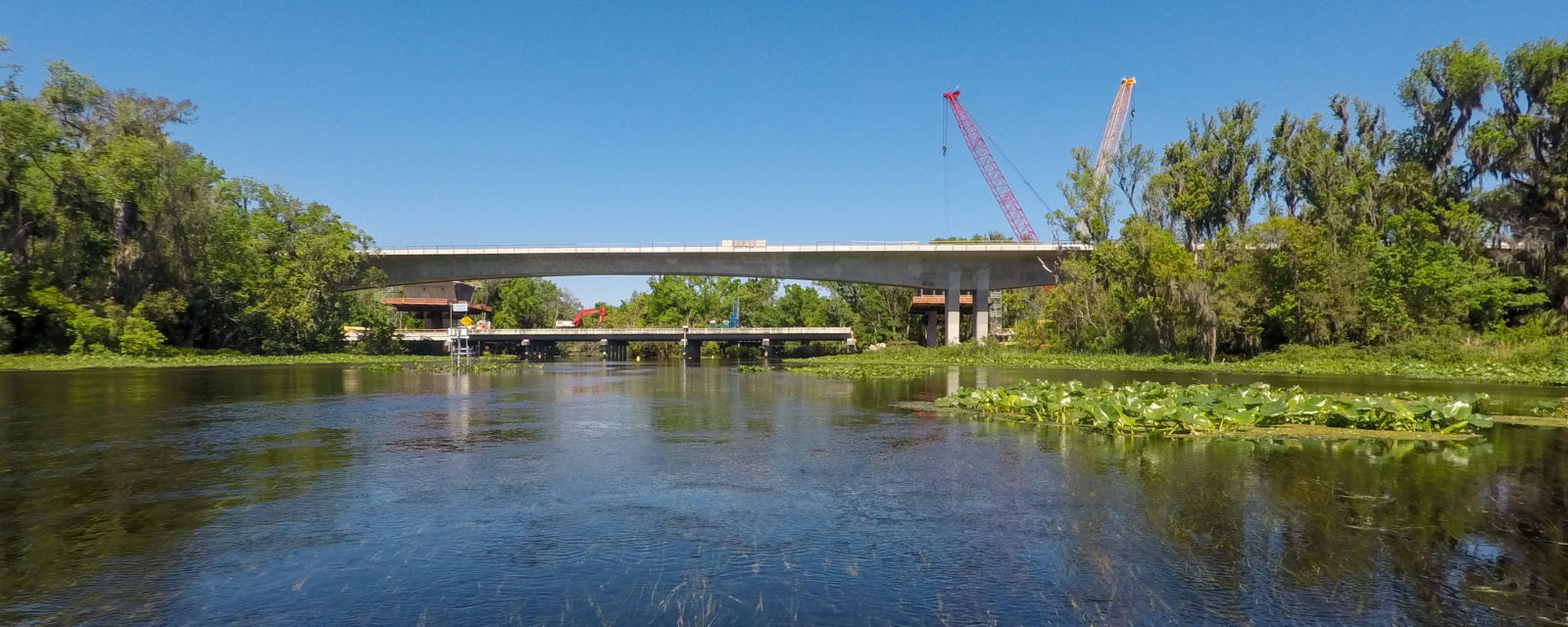
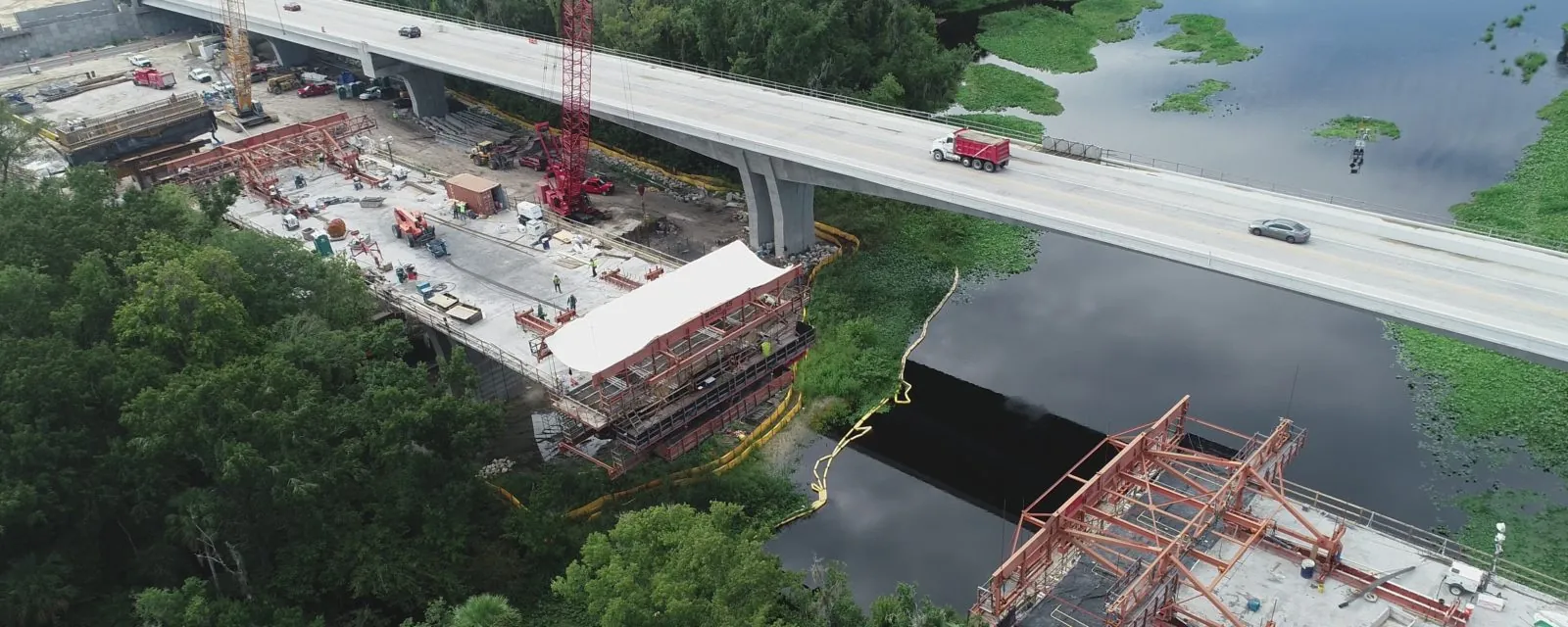
Wekiva Parkway Section 6 Design-Build
Project Details
Client / Owner
Florida Department of Transportation, District 5
Focus Areas & Services
Size
6.1 miles
Delivery Method
Design-Build
Awards
Best in Construction Award, FTBA, 2023
Outstanding Major Project, ACEC-FL, 2023
DBIA Transportation Structures Honor Award, DBIA Florida Region, 2023
Preserving the environment and overcoming challenges to link vital Wekiva River corridors
Bridging vital corridors
The Wekiva Parkway Section 6 project, known for its remarkable Wekiva River Crossing, is located near Sorrento, Florida. Intentions for the parkway were to reduce heavily congested roadways and significantly cut long commutes while also considering environmental considerations, extensive karst topography, structural complexity, and adjacent project connections.
This innovative and cost-effective design-build project comprised the design and construction of 6.1 miles of roadway, including a limited access toll road and a non-tolled local road in Lake and Seminole Counties, Florida. The project included nine wildlife crossing bridges, six local road crossings, and three cast-in-place concrete segmental bridges that crossed pristine waters. This river is designated as a national wild and scenic river and an outstanding Florida waterway. The new bridges total 25,000 linear feet of concrete structures with over 2,000 concrete piles used for the foundations.
Additional work included over 2 million cubic yards of embankment, soil stabilization using rigid inclusion columns, construction of 45 MSE walls, new asphalt pavement, milling and resurfacing of existing county roads, drainage system improvements, a roundabout, intelligent transportation system (ITS), signing and pavement markings, utility coordination, all-electronic tolling infrastructure, landscape concept development, and extensive stakeholder coordination. The ITS system is integrated with FDOT’s regional transportation management center, allowing the digital message signs to be updated with real-time alerts. The design and construction were completed in approximately five years.
Project challenges matched with forward-thinking solutions
Despite challenges such as extensive karst topography, environmental considerations, structural complexity, and adjacent project connections, the design-build team overcame obstacles with innovative solutions.
Safety was paramount throughout the project, with meticulous hazard analysis and a proactive safety framework. Completing the Wekiva Beltway also contributed to end-user safety by diverting traffic from the dangerous I-4 corridor, reducing the risk of accidents.
Environmental consciousness from the beginning to the future
Environmental consciousness was a vital aspect of the project. The team implemented measures to minimize environmental impact, including wildlife crossings and sediment containment systems. The project’s harmonious integration with the natural surroundings earned praise for its aesthetic appeal while maintaining structural integrity. To reduce vehicle-wildlife conflicts, the team designed three separate wildlife crossings, including nine wildlife bridges, to provide animals with 838,000 square feet to pass safely between the Seminole State Forest and Rock Springs Run State Reserve.
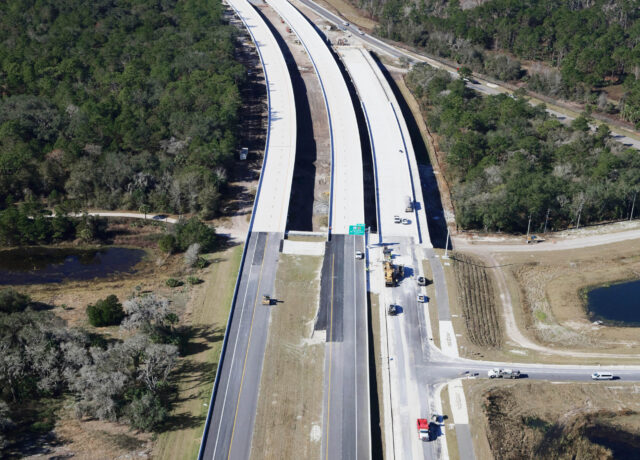
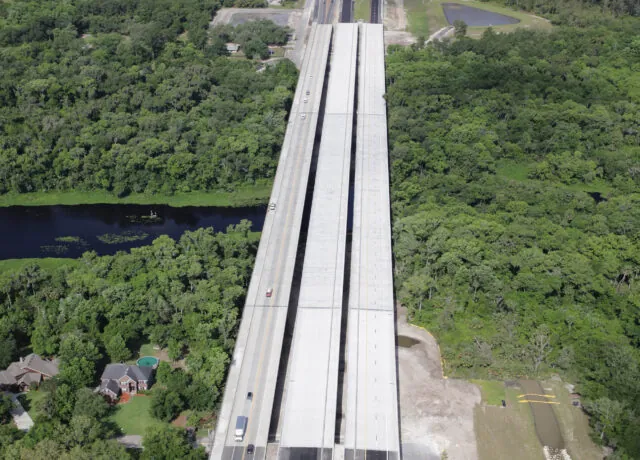
A testament to functionality & aesthetic appeal
The Wekiva River Crossing is a testament to the fusion of functionality and beauty. Its segmental design allows for unique architectural elements and graceful curves, enhancing the visual appeal while maintaining structural integrity. The bridge’s harmonious integration with the natural surroundings has garnered praise from its owner, residents, and visitors, enriching the region’s cultural landscape.
Exceptional results for long-term impacts
The Wekiva River Crossing is an extraordinary project for its achievements in engineering, environmental stewardship, aesthetic integration, technical innovation, and community impacts. In 2023, the Florida Transportation Builders’ Association (FTBA) awarded this project the Best in Construction and Outstanding Major Project by the American Council of Engineering Companies (ACEC) of Florida. The lasting legacy of this project will significantly impact connectivity and safety for generations to come.
This iconic $247 million design-build project demonstrates excellence in design, construction, CEI, safety, collaboration, and environmental harmony. Spanning a federally designated Wild and Scenic River, it encompassed three cast-in-place segmental bridges and serves as a vital regional transportation link, alleviating traffic congestion on the I-4 corridor and offering recreational resources to the local community.

